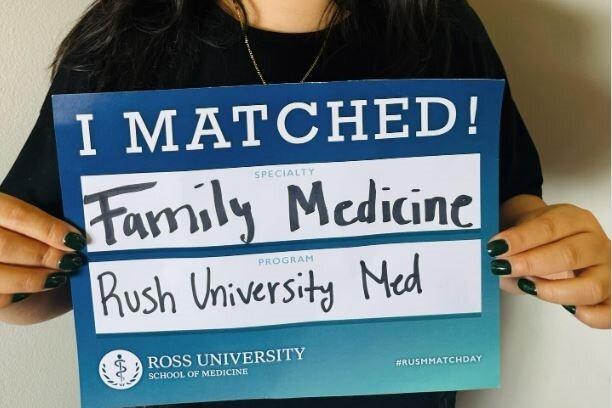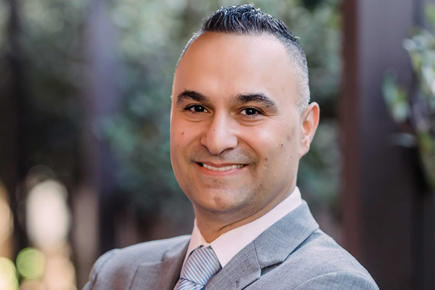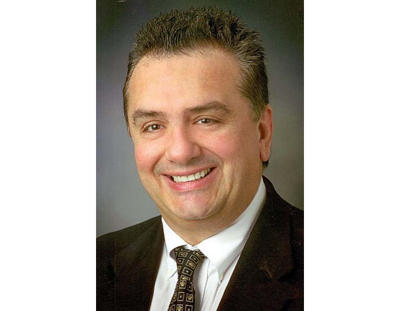The only twist is that this recent Ross University School of Medicine (RUSM) graduate has to miss her graduation ceremony this year. “Because it’s the same day as my wedding,” laughs the Guelph native, who wrapped up studies at RUSM in late 2014. Todd matched in neurology at University of Toronto in the first iteration of the 2015 Canadian Resident Matching Service (CaRMS), grabbing one of two spots dedicated to international medical school graduates. She was one of three thousand applicants to vie for the spot, she says.
Heading Right Back Home for Residency
It’s safe to say she’s pleased—and a bit surprised.
“At U of T, they only interview 13 people [for the neurology program],” she says. “You can understand why I’m very, very shocked about being accepted—I applied through CaRMS thinking I wouldn’t even get an interview there, much less be sitting here right now as a PGY-1 neurology resident.”
The idea, she says, was always to stay close to home during residency. “I didn’t know I’d be this close,” she says. “I’d mentally prepared for the US match, but I’m so excited to stay home in Canada.”
Family Ties Brought Her to Medical School
Her uncle, a physician, served as a mentor of sorts, but Todd’s grandfather was what really drove her toward an interest in medicine.
“My grandfather was really ill,” she says. “He’s someone who was close to me, and I wanted to learn more about his illness.” Her grandfather had chronic obstructive pulmonary disorder (COPD), a condition that she didn’t know much about at the time.
“I ended up really immersing myself in researching medicine to try and figure out what I could have done—had I been a physician—to provide better care for him,” she says.
Ultimately, her grandfather passed away from pneumonia. But Todd's interest in medicine lingered. “It was that interest in the pathogenesis of respiratory illnesses, the interest in why he had to go for lab tests and how they worked—that’s what really pulled me toward the idea of being a doctor,” she says.
“Ross Will Test Your Resilience”
On attending a Caribbean medical school like RUSM, she says, she gives one piece of advice: "You really have to want it."
"Ross will test your resilience, your love for the field,” she says. “You have to be 100% committed to becoming a physician."
Supported by what she described as “amazing faculty” and a group of medical school peers who all had exactly the same endgame in mind—earning their Doctor of Medicine (MD) degrees—Todd says that RUSM’s campus environment “immerses” you in the study of medicine.
“It’s sort of a bubble,” she says. “You really focus on your schooling and education, and it teaches you a real respect for the field,” she says. “And sometimes, I do miss waking up and wearing shorts every day.”
An “Awesome” Experience During Clinicals
After completing the Foundations of Medicine (basic sciences) curriculum, Todd headed to the United States to start her clinical rotations. She completed her “cores” in Chicago, Ill., at Norwegian American Hospital; elective rotations took place back in her home country of Canada.
Her experience at Norwegian, she says, was a particularly memorable one.
“That was an awesome clerkship year,” she says. “[Norwegian is] a great hospital—there aren’t any residents there, so it’s really almost like you’re a resident,” she says. “And the city [of Chicago] is amazing.”
Thoughts on Future Careers in Medicine
Though she has some time to decide, Todd is already thinking of her next career steps. Ideally, she’d like to come back home to Guelph to practice neurology, possibly while researching cognitive disorders on the side.
“I earned my master’s degree before medical school, so I have a love of academic research,” she says.
But she has time, and a wedding to hold, before any of that happens. And when that wedding happens, RUSM will be represented—even though she won’t be able to make it to graduation.
“I made best friends for life at Ross,” she says. “Some of them are bridesmaids for the wedding.”



